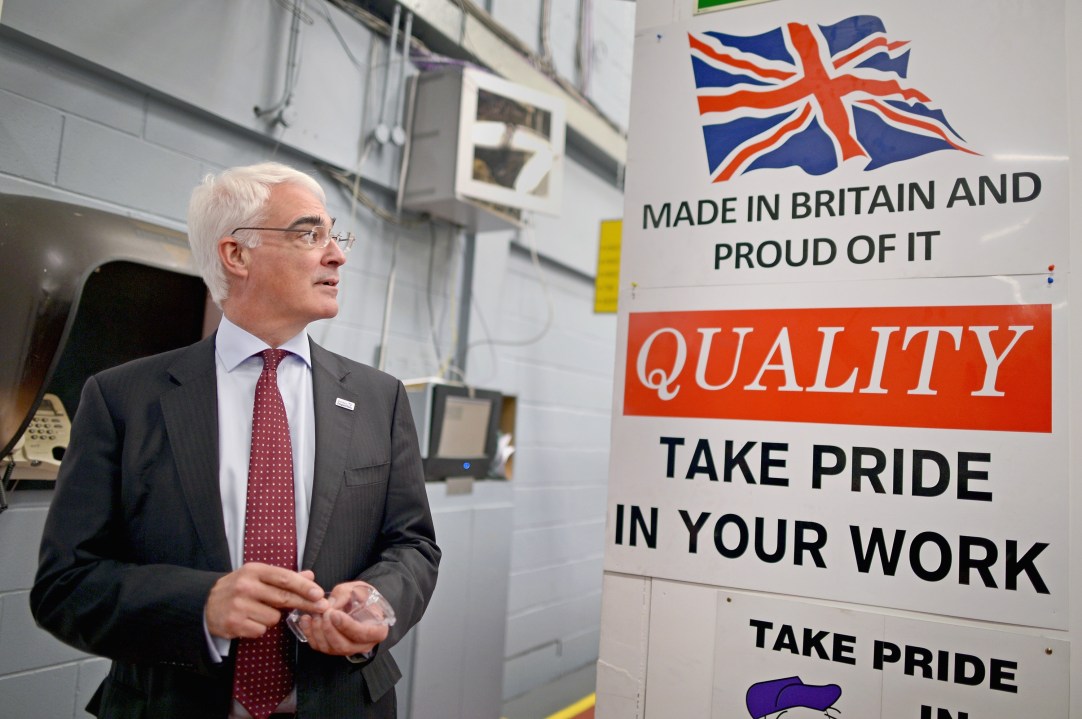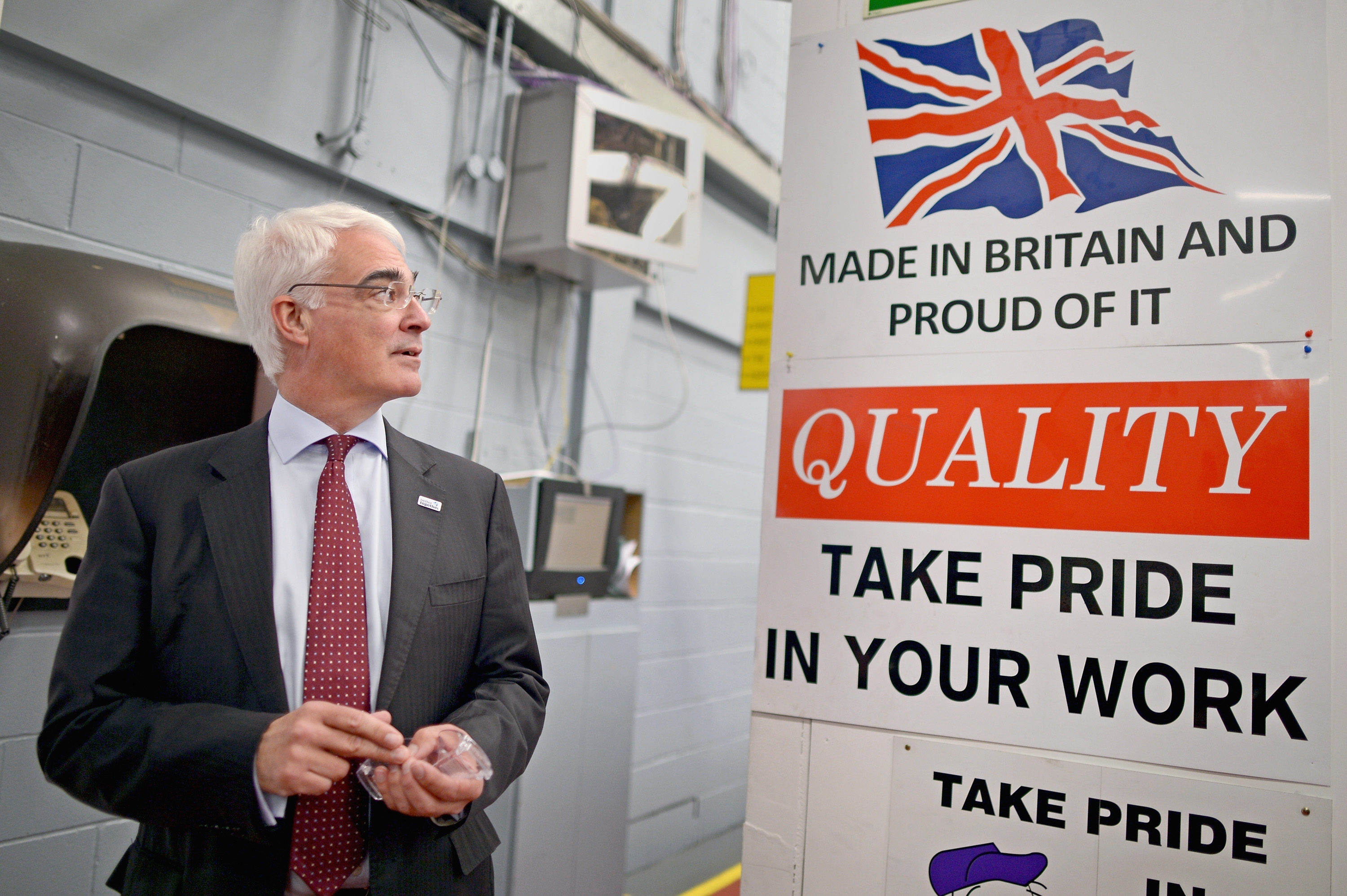‘Utter fucking bollocks’. In case that’s not clear enough for you, the suggestion that Alistair Darling is being replaced as the head of the Better Together campaign is, as one insider puts it, ‘absolute horseshit’.
Douglas Alexander, the man replacing Darling according to the Daily Mail, was at the Better Together HQ in Glasgow earlier today and, I understand, mildly surprised to learn of his elevation.
Then again, the Mail only reports that there will be ‘no formal announcement of a change’ merely a ‘secret agreement’ that Alexander should effectively supplant Darling. So secret, however, that no-one involved appears to have heard of it.
James Chapman is a fine reporter but one can’t help but think the sources he cites testifying to Darling’s supposed relegation are a) likely to be in London and b) most likely to be Conservatives and that a combination of a) and b) suggests they might not have the greatest clue in the world about what’s happening in Scotland.
The strength of this report is further undermined by the suggestion Alexander is taking a ‘newly prominent’ role. True, he gave a speech the other day but, gosh, he’s done that before. Quite often, actually. In fact the Shadow Foreign Secretary is hardly a stranger north of the Tweed and Solway. He’s been making speeches — mostly quite good ones — for months and pops up pretty regularly in the newspapers too.
But yes, Alexander, like other senior Labour figures, will be campaigning for the Union this summer. And so will Gordon Brown (in his own way). Which, surely, is as it should be. Mustering additional brigades is not the same thing as replacing the brigades already in the field.
Nationalists sometimes complain that Unionists personalise the referendum too much. It’s not just about Alex Salmond, they complain. Which is true, though it is at least partly about the First Minister. Equally, however, the Better Together campaign is not just about Alistair Darling. (Nor, even, is it about David Cameron.)
Be that as it may, the suggestions Douglas Alexander is some kind of millstone for the Unionist campaign (see Mark Wallace for more) or that Sir Malcolm Rifkind should decamp to Colinton until September (see Graeme Archer) seem equally misguided. In the first place, Alexander is no fool and in the second, the idea that Better Together’s problems can be solved by parachuting in a new champion is one that reeks of a kind of desperate panic masquerading as last-ditch optimism.
As it happens I think Better Together has not run the best available campaign but the tightening in the polls we’ve seen is only partly their fault. f it is their fault at all. That is, the notion the Union would cruise to a 75-25 or even 70-30 victory has always seemed delusional to me.
Delusional because the case for independence is not innately preposterous or daft. It has a certain compelling logic to it and a logic, moreover, with which many Unionists can sympathise even if they remain determined to vote No.
If I’m unpersuaded by the practical case yet made by the Nationalists that need not prevent one from agreeing that there is a reasonably robust theoretical case for independence. I am not surprised other people are persuaded by it. The Yes side has had the easier story to tell and the easier message to sell all along. Yes we can is a better line to peddle than Well maybe we could but we probably shouldn’t.
That said, Better Together could do more. It could, for instance, talk less about Scotland and more about Britain. It could do a better job stressing all the good things about Britain and all the reasons why, despite what the Nationalists aver, Britain is far from a clapped-out historical relic. This would be less about the advantages Scotland derives from the Union and more about what Britain achieves as a Union.
It could go further still and argue not only that Scotland is British (a point in large part conceded by the SNP leadership, what with their talk of the Social Union) but that Scotland actually is Britain. For without Scotland, what is Britain? Only England and a handful of dependencies (sorry about that, Wales) and since England cannot leave Britain* the fate of Britain – and Britishness – will be determined by Scotland.
Best of both worlds is not, in fact, a dreadful slogan but it’s one that still needs to be rammed home with greater vigour than has sometimes seemed the case. Independence could certainly open a door to great things for Scotland but it’s hardly the only door available. That means stressing opportunity every bit as much as Unionists talk of the security provided by the Union. More in fact, since the security argument is, in the end, a kind of feeble one all too suggestive of a certain weakness of confidence.
Darling may not be the most charismatic politician in the land but he’s not been a liability – which is more than can be said of several cabinet ministers. Some people seem shocked that the race looks as though it will be a close one. I’m more tempted to be shocked by the fact people are shocked by this. It’s almost as if they’ve not been paying attention.
*Yes, yes, yes, Britain as a geographical entity will still exist after independence but that’s not what we mean by Britain in this case is it? No it is not and it is tendentious piffle to pretend otherwise. That includes you, Mr Salmond.








Comments